Tencor® P-7 Stylus Profiler
Product Overview
The Tencor P-7 stylus profiler offers step height measurement capability for steps from a few nanometers to one millimeter, for production and R&D environments. The benchtop profiler system supports 2D and 3D measurements of step heights, roughness, bow, and stress for scans up to 150mm without stitching.
Product Description
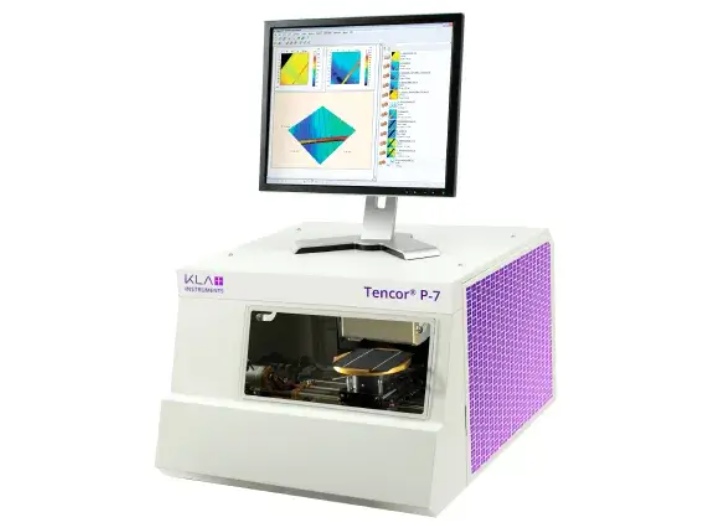
The Tencor P-7 benchtop stylus profiler builds on the success of the market leading Tencor P-17 benchtop stylus profiling system. It includes the superior measurement performance of the P-17 technology in a platform that offers a great price-to-features ratio for a benchtop stylus profiler. The Tencor P-7 stylus profiler supports 2D and 3D measurements of step heights, roughness, bow, and stress for scans up to 150mm without stitching.
Applications
• Step height: 2D and 3D step height
• Texture: 2D and 3D roughness and waviness
• Form: 2D and 3D bow and shape
• Stress: 2D and 3D thin film stress
• Defect review: 2D and 3D defect surface topography
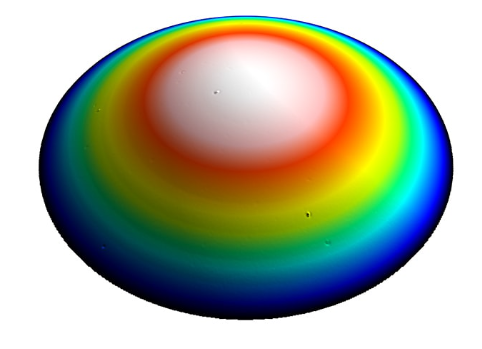
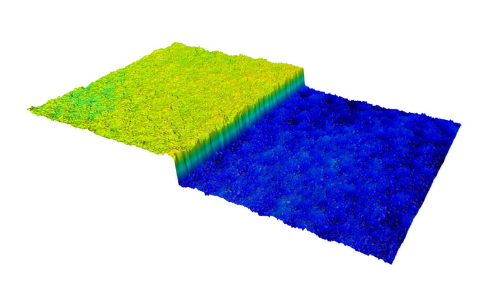
Step Height
The Tencor P-7 benchtop stylus profiler is capable of measuring 2D and 3D step heights from nanometers to 1000µm. This enables quantification of material deposited or removed during etch, sputter, SIMS, deposition, spin coating, CMP and other processes. The Tencor P-7 has constant force control that dynamically adjusts to apply the same force on the sample surface, regardless of step height. This results in good measurement stability and enables accurate measurement of soft materials, such as photoresist.
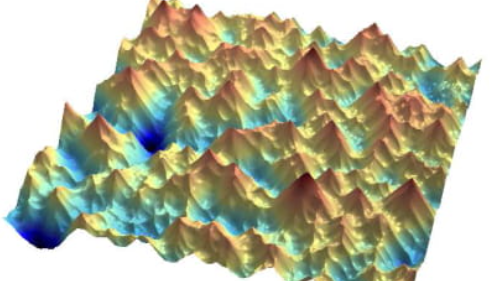
Texture: Roughness and Waviness
The Tencor P-7 measures 2D and 3D texture, quantifying the samples roughness and waviness. Software filters separate the measurement into the roughness and waviness components and calculate parameters, such as the root mean square (RMS) roughness.
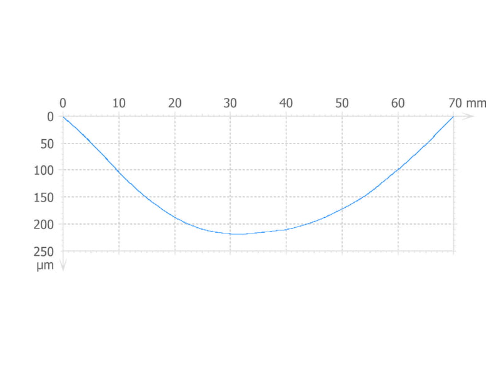
Form: Bow and Shape
The Tencor P-7 can measure the 2D shape or bow of a surface. This includes measurement of wafer bow that can result from mismatch between layers during device fabrication, such as deposition of multiple layers for the production of semiconductor or compound semiconductor devices. The Tencor P-7 benchtop profiler can also quantify the height and radius of curvature of structures, such as a lens.
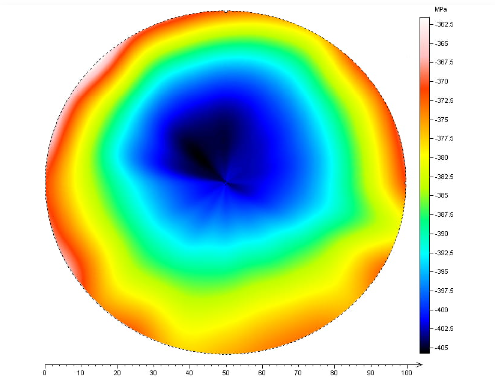
Stress: 2D and 3D Thin Film Stress
The Tencor P-7 profilometer is capable of measuring stress induced during the manufacture of devices with multiple process layers, such as semiconductor or compound semiconductor devices. The bow of the surface is accurately measured using a stress chuck to support the sample in a neutral position. The change in shape from a process, such as film deposition, is then used to calculate the stress by applying Stoneys equation. 2D stress is measured with a single scan across the sample diameter for samples up to 200mm without the need to stitch. 3D stress is measured using a combination of 2D scans, with the theta stage rotating between scans to measure the full sample surface.
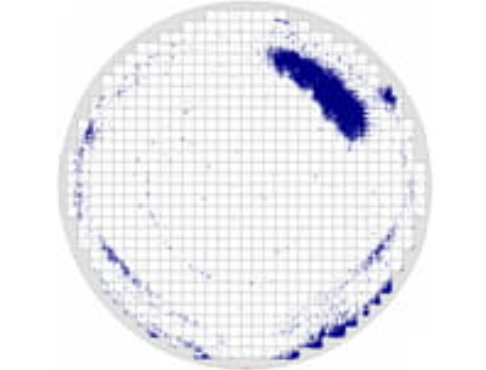
Defect Review
Defect Review is used to measure the topography of defects, such as the depth of a scratch. Defect inspection tools identify defects and write the location coordinates to a KLARF file. The Defect Review feature reads the KLARF file, aligns the sample, and allows the user to select defects for 2D or 3D measurement.

Features
1. Step height: Nanometers to 1000µm
2. Low force with constant force control: 0.03 to 50mg
3. Scan full diameter of the sample without stitching
4. Video: 5MP high-resolution color camera
5. Arc correction: Removes error due to arc motion of the stylus
6. Software: Easy-to-use software interface
7. Production capability: Fully automated with sequencing, pattern recognition and SECS/GEM
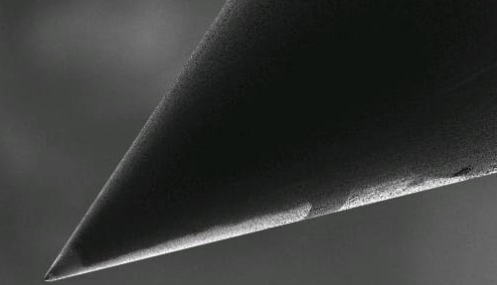
Stylus Options
The Tencor P-7 has a variety of styli available to support the measurement of step heights, high aspect ratio steps, roughness, sample bow, and stress. The tip radius ranges from 100nm to 50µm and determines the lateral resolution of the measurement. The included angle ranges from 20 to 100 degrees, which specifies the maximum aspect ratio of the measured feature. All styli are manufactured from diamond to reduce wear and increase stylus lifetime.
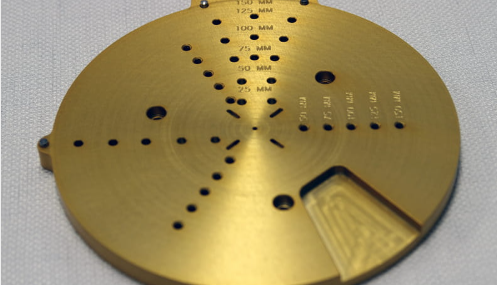
Sample Chucks
The Tencor P-7 has a range of chucks available to support application requirements. The standard is a universal vacuum chuck with precision locating pins for samples of 50 to 150mm. The universal chuck supports bow and stress measurements with 3-point locators to support the sample in a neutral position. Additional options for solar samples and 200mm universal chucks are available.
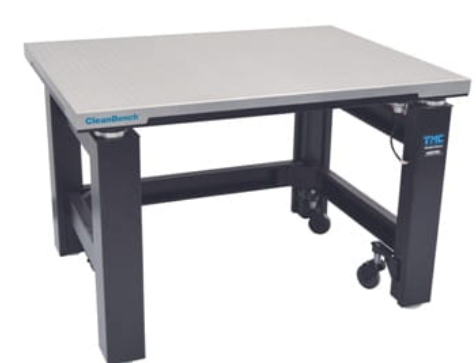
Isolation Tables
The Tencor P-7 has both tabletop and free-standing isolation table options. The Granite Isolator Series offers tabletop systems that combine granite with high grade silicone gel to provide passive isolation. The Onyx Series tabletop isolation systems use pneumatic air isolators to provide passive isolation. The TMC 63-500 Series isolation table is a free-standing steel frame table that uses pneumatic air isolators to provide passive isolation.
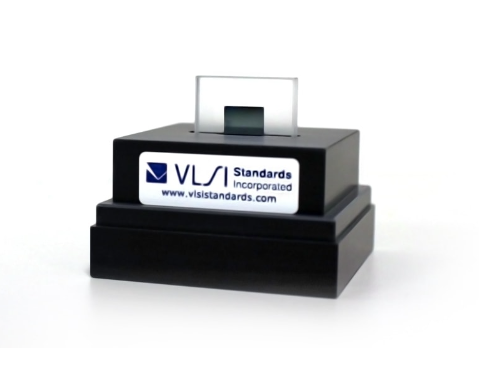
Step Height Standards
The Tencor P-7 uses thin and thick film NIST-traceable step height standards offered by VLSI Standards. The standards feature an oxide step on a silicon die mounted on a quartz block, or an etched quartz step with a chrome coating. A step height range of 8nm to 250µm is available.
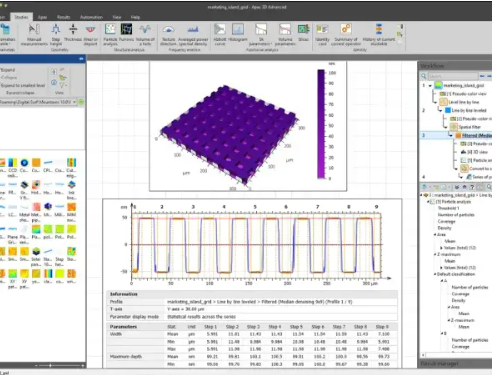
Apex Analysis Software
Apex analysis software enhances the standard data analysis capability of the Tencor P-7 with an extended suite of leveling, filtering, step height, roughness, and surface topography analysis techniques. Apex supports ISO roughness calculation methods, plus local standards, such as ASME. Apex can also serve as a report writing platform with the capability to add text, annotations, and pass/fail criteria. Apex is offered in eleven languages.
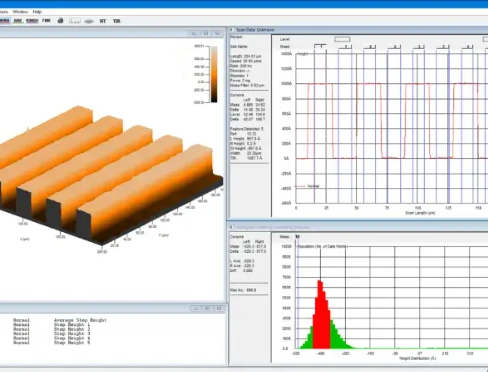
Offline Analysis Software
The Tencor P-7 uses thin and thick film NIST-traceable step height standards offered by VLSI Standards. The standards feature an oxide step on a silicon die mounted on a quartz block, or an etched quartz step with a chrome coating. A step height range of 8nm to 250µm is available.
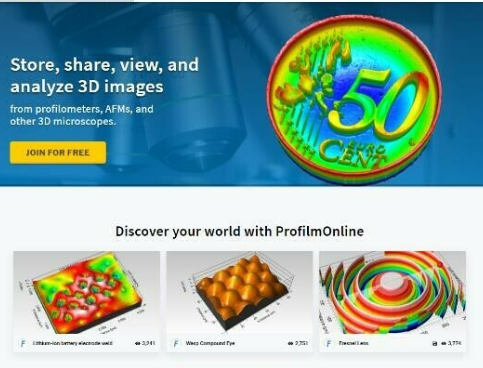
ProfilmOnline Web Application
Filmetrics ProfilmOnline is a cloud-based 3D data visualization and analysis platform developed as part of the Profilm software suite. ProfilmOnline is the place to share, store, view and analyze 3D data, whether youre on your computer or a mobile device. Apps for Android and iOS operating systems are available and a wide variety of file formats is supported. Data can be encrypted for security.

Pattern Recognition
Pattern recognition uses pre-taught patterns to automatically align the sample. This enables fully automated measurements for enhanced measurement stability by reducing the impact of operator error. Pattern recognition combined with advanced calibrations reduces stage positioning error and enables seamless transfer of recipes between systems.
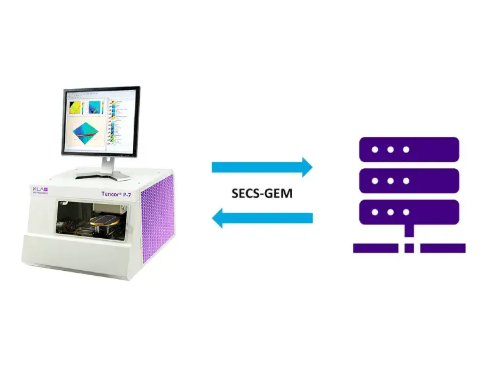
SECS/GEM and HSMS
SECS/GEM and HSMS communications support factory automation systems and enable remote control of the Tencor P-7. Measurements results are automatically reported to host SPC systems, plus alarms and key calibration/configuration data. The Tencor P-7 is compliant with SEMI standards E4, E5, E30, and E37.

Industries
1. Universities, research labs, and institutes
2. Semiconductor and compound semiconductor
3. LED: Light emitting diodes
4. Solar
5. MEMS: Micro-electro-mechanical systems
6. Data storage
7. Automotive
8. Medical devices
9. And more: Contact us with your requirements

Specifications
 General Information about Stylus-based Surface Profilers from KLA Instruments
General Information about Stylus-based Surface Profilers from KLA Instruments
This application note discusses components and technologies specific to the KLA Instruments stylus profilers, including topography measurement, force control, scanning mechanism, stylus types and dimensions, and stylus profilometry applications.
 Multi-Step Analysis Function: Powerful Analytics from KLA Instruments Surface Profilers
Multi-Step Analysis Function: Powerful Analytics from KLA Instruments Surface Profilers
Multi-Step Analysis is a new automated algorithm that automatically measures step height/trench depth for up to 30 features along a scan profile, including automatic cursor placement. This capability significantly improves time-to-results and removes measurement variability relative to previous manual methods.
 Topography Sensor Technology for Stylus Profilers
Topography Sensor Technology for Stylus Profilers
The topography sensor is one component of the stylus measurement head, which is used to track the surface of the sample being measured. Three major sensor types are LVDT, Optical Lever and LVDC, and this application note discusses the design of each.
 Precision Depth Measurement of Shallow SIMS Craters using a KLA Instruments Stylus Profilometer
Precision Depth Measurement of Shallow SIMS Craters using a KLA Instruments Stylus Profilometer
The depth of SIMS craters generated by ion beam milling is used to determine the concentration of impurities. The objective of this application note is to present a technique to accurately measure the depth of shallow SIMS craters using a stylus profiler.
 Profiler Pattern Recognition Selection
Profiler Pattern Recognition Selection
KLA Instruments Tencor P-Series stylus profilometers offer pattern recognition capability for automated surface analysis. This application note describes pattern recognition and its usage for automated sample alignment for the Tencor P-7, P-17, P-170, and HRP-260 profilometers.
 Stylus Product Line
Stylus Product Line
KLA Instruments stylus profilometers may be used with different styli to optimize measurements for specific applications. The KLA profilers, including the Alpha-Step® D-Series, Tencor P-Series and High Resolution Profiler (HRP®) Series all use the same stylus design. This application note discusses the various types of styli available for these stylus profilometers and typical applications for their use.
 3D Surface Measurement Parameters
3D Surface Measurement Parameters
When using the Tencor P-7, P-17 and P-170, and HRP®-260 surface profilometers, the user sets up scan recipes which include calculations of various 3D surface metrology measurement parameters, including surface roughness. This application note provides mathematical detail regarding the equations used to generate the parameter values.
 2D Surface Measurement Parameters
2D Surface Measurement Parameters
When using the Tencor P-7, P-17 and P-170, and HRP®-260 surface profilometers, the user sets up scan recipes which include calculations of various 2D surface metrology measurement parameters, including surface roughness. This application note provides mathematical detail regarding the equations used to generate the parameter values.
 Thin Film Stress Measurements using KLA Stylus-Based Profilers
Thin Film Stress Measurements using KLA Stylus-Based Profilers
For Tencor and P-Series stylus profilers, the full-diameter profile measurement can be taken before and after film deposition to calculate the induced thin film stress. Hardware and software usage recommendations are also included.
 Apex Software
Apex Software
Stylus profilers from KLA Instruments are available with advanced 2D/3D surface analysis software to provide additional insight into profilometer measurement data. The Apex software includes data processing, analysis, visualization and reporting capabilities for both 2D profiles and 3D topography.
- Home Home
- About Us About Us
- All Products All Products
- Fabs Fabs
- Labs Labs
- Services Services
- Application Application
- Accessories Accessories
- News & Events News & Events
- Contact Us Contact Us
- Request Quotation Request Quotation


